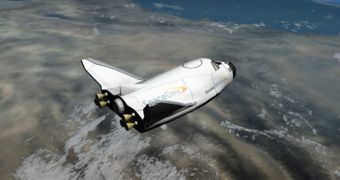With President Barack Obama's proposal to cut funding for Project Constellation, the way is cleared for private space corporations to step in and approach space exploration their way. The 2011 budget proposal allots more than $6 billion to NASA for fostering innovation within the private sector, by funding private companies and their vehicles. Representatives from these companies now say that, under the new funding scheme, going to the Moon by 2020, and to low-Earth orbit by 2014, is highly feasible. In a recent conference, the officials also addressed the security issues brought up by critics.
There are many people who believe that canceling Project Constellation, which was designed primarily around astronaut safety, was a mistake. Critics say that no private company has yet demonstrated manned spaceflight, whereas NASA has decades of experience with this. Recently, a NASA panel warned that dropping funding for the ARES I delivery system would be a mistake. Even among the American space agency's projects, this rocket was designed from the get-go with astronaut safety in mind, and there simply are no vehicles in the private sector that compete with that at this point.
Officials from several space corporations recently announced that they were ready, willing and able to pick up the burden that NASA would leave behind later this year, when it conducts its last shuttle flight before the fleet is retired. In a teleconference on Monday, the president of the Commercial Spaceflight Federation, Bretton Alexander, revealed that the $6 billion the Obama Administration allotted for private companies amount to a “historic decision.” He also took on the wave of criticism that was aimed at the new vehicles' safety standards, Space reports.
Alexander says that all existing, private spacecraft designs have been designed in a way that allowed them to respect the most stringent manned spaceflight demands set by NASA and the Russian-managed Soyuz program. “Safety-wise, we are the least able to afford mishaps,” revealed the head of the Las Vegas, Nevada-based Bigelow Aerospace, Robert Bigelow. This company is at this point involved with constructing inflatable space habitats. Other representatives state that, by 2020, private citizens could be circumnavigating the Moon, and that routine flights to low-Earth orbits will be very common. Some entrepreneurs want to start constructing a number of private space stations as soon as possible, to be used as space resorts for the wealthy.

 14 DAY TRIAL //
14 DAY TRIAL //